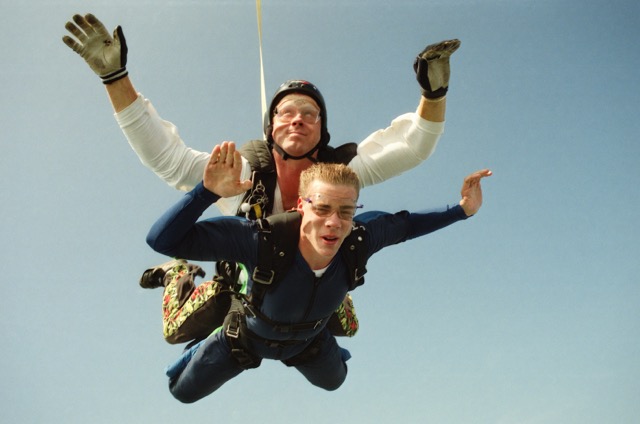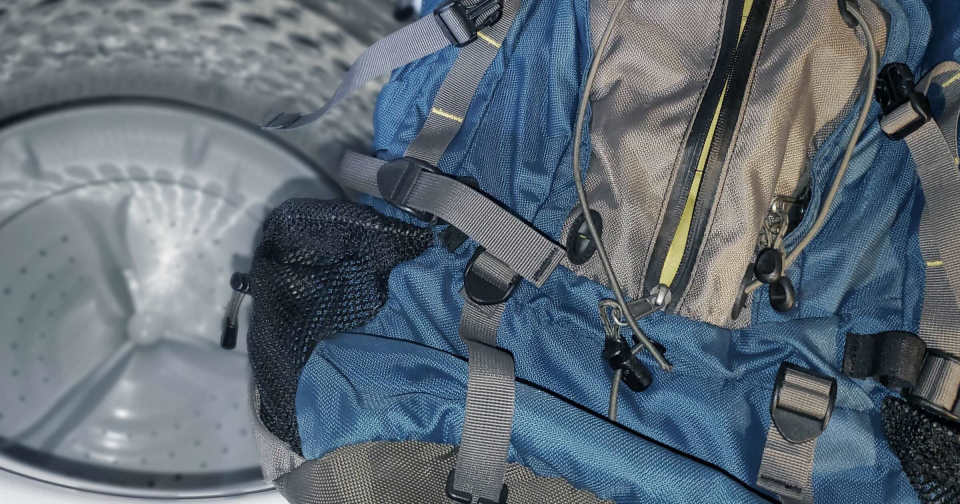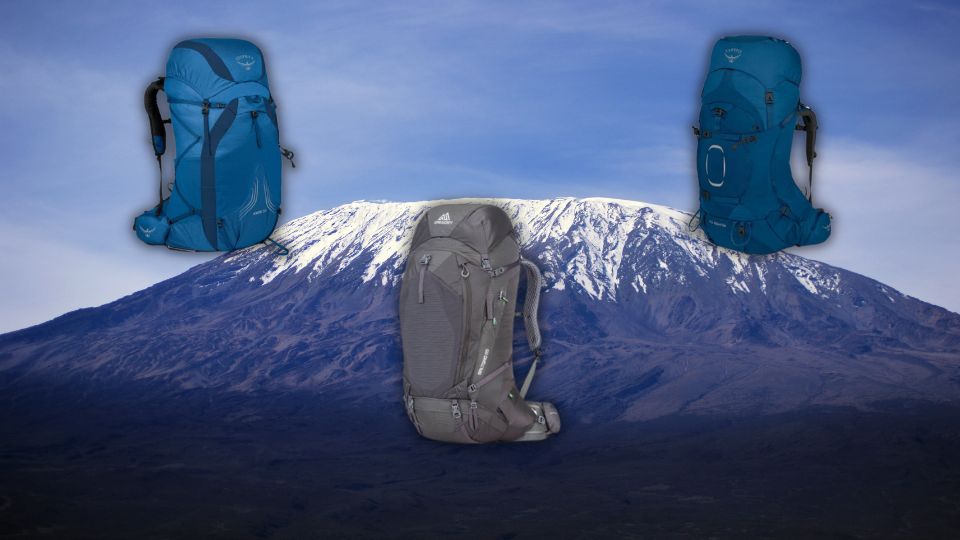Are you an adventure-seeking parent wondering if skydiving is something your child could enjoy? Or perhaps you’re a young adrenaline junkie trying to find out if you’re old enough to take the leap? Well, look no further! We’ll answer all your burning questions about skydiving age restrictions, safety considerations for kids, and what parents need to do to allow their children to experience the thrill of soaring through the sky. So, whether you’re a curious visitor or a ready-to-go skydiving enthusiast, read on to find all the information you need to plan an unforgettable skydiving adventure for your child or yourself!
Introduction
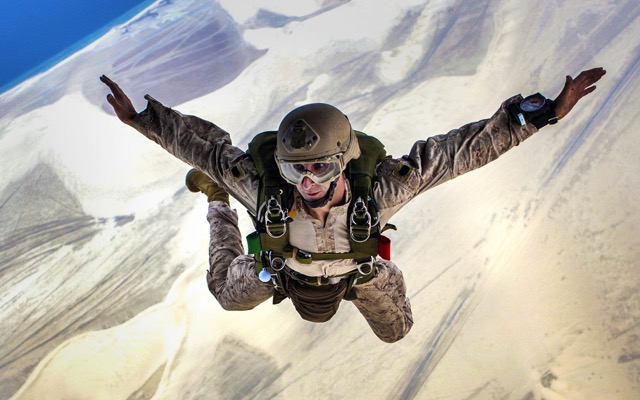
In order to participate in a skydiving adventure, there are certain age restrictions that must be met. The minimum age requirement to skydive varies depending on the country and the regulations set by the specific skydiving center. Generally, most skydiving centers require participants to be at least 18 years old. This age requirement ensures that individuals have reached a level of maturity and responsibility necessary for such an extreme sport.
However, it is important to note that some skydiving centers may allow younger individuals to skydive under certain circumstances. For example, there are tandem skydiving options available for children as young as 10 years old. Tandem skydiving involves jumping while securely attached to an experienced skydiving instructor. This allows younger individuals to experience the thrill of skydiving while also ensuring their safety.
In addition to age restrictions, it is essential for participants to meet certain physical requirements. These requirements ensure the safety of the individual and enhance the overall skydiving experience. Participants must be in good health and free from any medical conditions that may pose a risk during the jump. Furthermore, weight restrictions may apply to ensure proper parachute function and landing safety.
-
- Research the Skydiving Center:
Before planning a skydiving adventure, it is crucial to research the skydiving center you intend to visit. Different skydiving centers may have varying age requirements and restrictions. By thoroughly researching the center, you can ensure that you meet all the necessary criteria and avoid any disappointment on the day of your jump.
-
- Check the Legal Age Requirements:
Ensure that you are aware of the legal age requirements for skydiving in your country or region. This information can usually be found on the skydiving center’s website or by contacting them directly. By checking the legal age requirements, you can determine whether you are eligible to participate in a skydiving adventure.
-
- Consider Tandem Skydiving Options:
If you are below the minimum age requirement for solo skydiving, consider exploring tandem skydiving options. Tandem skydiving allows individuals to experience the thrill of skydiving while attached to a qualified instructor. Not only does this provide an opportunity for younger individuals to skydive, but it also ensures their safety throughout the entire jump.
Is It Safe to Take Kids Skydiving?
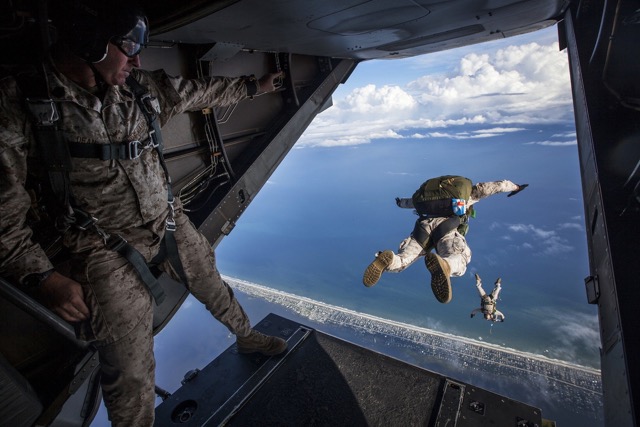
Is it safe to take kids skydiving? This is a common question that many adventurous parents ask themselves. Skydiving is an exhilarating activity that can provide a unique experience for both adults and children. However, when it comes to taking kids skydiving, safety should always be the top priority.
First and foremost, it’s important to consider the age and physical capabilities of your child. Most skydiving centers have specific age requirements for participants. Generally, children need to be at least 18 years old to jump solo. However, some centers may allow children as young as 16 to jump with parental consent. So, it’s best to check with the skydiving center beforehand to know their age restrictions.
Additionally, kids who meet the age requirements should also meet the physical requirements to participate in skydiving. The intense nature of the activity requires individuals to be in good health and have a certain level of physical fitness. It’s crucial to ensure that your child has no underlying medical conditions that could pose a risk during the jump. A thorough medical examination is always recommended before engaging in any high-adrenaline activity like skydiving.
How Young Can You Be to Skydive?
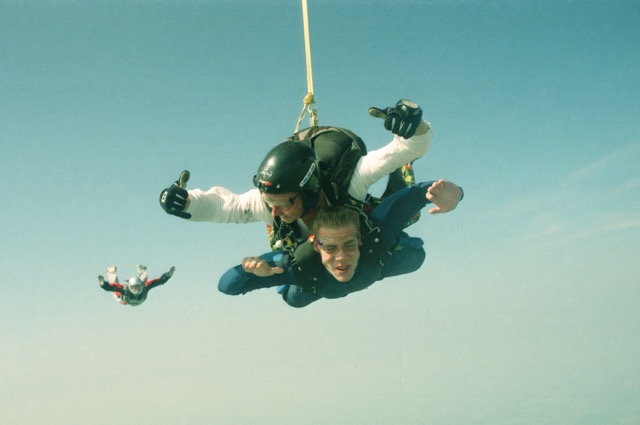
Skydiving is an exhilarating and adrenaline-pumping activity that many people dream of experiencing at least once in their lives. It offers a unique perspective of the world from above and a thrilling free fall before the parachute opens. However, it is important to consider age restrictions and safety guidelines when considering letting young individuals participate in this extreme sport.
When it comes to skydiving, there is a minimum age requirement that varies depending on the country and the organization you choose to go skydiving with. In most places, individuals must be at least 18 years old to skydive without any restrictions. However, some organizations may allow younger individuals to skydive with parental consent or under certain conditions.
In the United States, for example, the Federal Aviation Administration (FAA) sets the minimum age requirement at 18 years old for solo skydiving. This means that anyone younger than 18 cannot legally perform a skydive alone. However, some skydiving centers may offer tandem skydives for individuals as young as 16 or even younger with parental consent. Tandem skydiving involves being harnessed to an experienced skydiving instructor who takes care of all the technical aspects during the jump.
What Do I Have to Do as a Parent to Allow My Kid to Skydive?
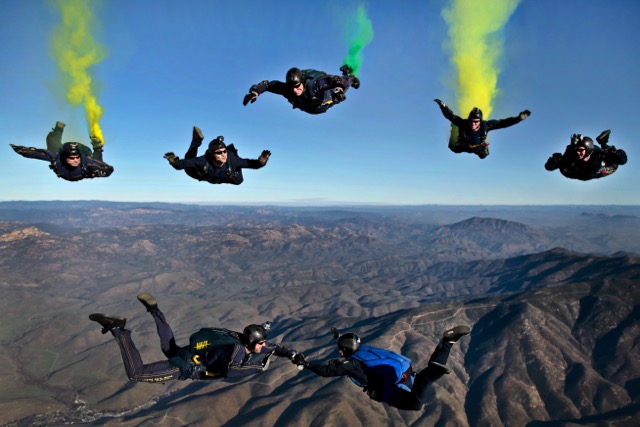
Skydiving is an exhilarating activity that many people enjoy. It involves jumping out of an airplane and freefalling through the air before deploying a parachute to land safely on the ground. For parents who are considering allowing their child to experience the thrill of skydiving, there are certain steps that need to be taken to ensure their safety and well-being.
The first and most important step is to check the legal requirements in your country or state regarding the minimum age for skydiving. The age limit can vary depending on the location and the specific skydiving center. In some places, the minimum age is as low as 16, while in others it may be 18 or even 21. It is crucial to abide by these regulations to ensure that your child is eligible to participate.
Once you have determined the minimum age requirement, it is essential to find a reputable skydiving center that has experience in working with younger jumpers. Look for a facility that specializes in tandem skydiving, as this is the safest option for first-time jumpers, especially children. Tandem skydiving involves jumping with a highly trained instructor who is responsible for deploying the parachute and ensuring a safe landing.
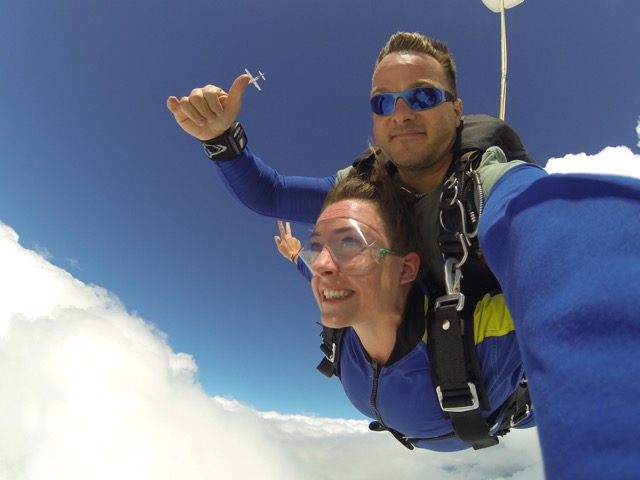
- Research the skydiving centers in your area and read reviews from other parents who have allowed their kids to skydive. Look for feedback on the professionalism of the instructors, the quality of the equipment, and the overall safety measures in place.
- Contact the chosen skydiving center and ask about their specific policies and procedures for minors. Inquire about any additional requirements or paperwork that needs to be completed prior to the jump.
- Discuss the decision with your child and ensure that they fully understand the risks and responsibilities involved in skydiving. It is essential to have an open and honest conversation about their readiness and willingness to participate in such an adrenaline-filled activity.
As a parent, it is your responsibility to prioritize the safety and well-being of your child. While skydiving can be an incredible and memorable experience, it is crucial to take the necessary precautions and thoroughly research the options available. By following the legal requirements, finding a reputable skydiving center, and having open communication with your child, you can make an informed decision and allow your kid to safely enjoy the thrill of skydiving.
How to Plan For My Child to Skydive
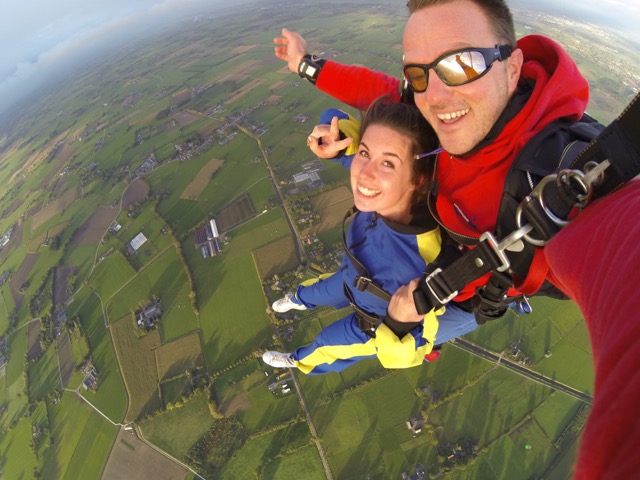
Skydiving is an exhilarating and adventurous activity that many people enjoy. It provides a unique experience of soaring through the sky and feeling the rush of adrenaline. If you are a parent who is considering allowing your child to skydive, it is essential to plan and prepare for this thrilling adventure. Planning ahead will ensure the safety and enjoyment of your child during their skydiving experience.
Research and Choose a Reputable Skydiving Center: The first step in planning for your child to skydive is to research and select a reputable skydiving center. Look for a center that has experienced instructors, proper certifications, and a good safety record. Read reviews and recommendations from other parents and individuals who have previously skydived with their children. Selecting a professional and reliable skydiving center will give you peace of mind and ensure a safe skydiving experience for your child.
Talk to Your Child: Before making any decision, have an open and honest conversation with your child about their interest in skydiving. Discuss their expectations, fears, and desires. This will allow you to gauge their readiness and enthusiasm for the activity. It is essential to ensure that your child genuinely wants to skydive and is not being influenced solely by peer pressure or other external factors.
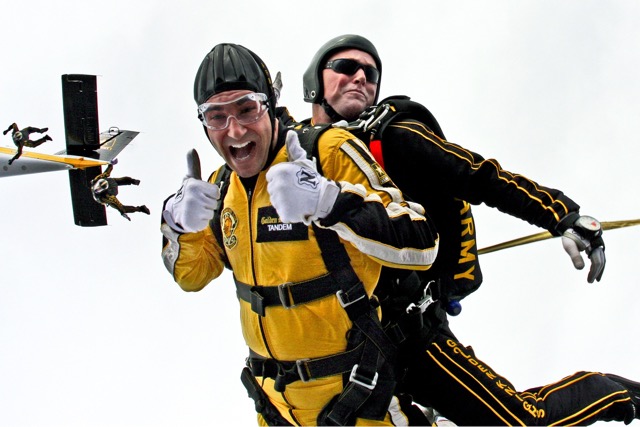
Check Age and Weight Restrictions: Different skydiving centers may have varying age and weight requirements for participants. Check the specific guidelines of the skydiving center you have chosen. Generally, children must be at least 18 years old to skydive alone. However, some centers offer tandem skydiving for children as young as 16 years old, with parental consent. Make sure your child meets the age and weight criteria set by the skydiving center.
Schedule a Consultation: Once you have selected a skydiving center and confirmed that your child meets the age and weight requirements, schedule a consultation with the center. During the consultation, the instructor will explain the entire skydiving process, including safety measures, equipment used, and what to expect during the jump. This will help alleviate any concerns or apprehensions your child may have and provide them with a clear understanding of what to expect.
Prepare Mentally and Physically: Skydiving requires a certain level of mental and physical preparedness. Encourage your child to engage in regular physical activity to ensure they have the strength and stamina needed for skydiving. Additionally, discuss the importance of maintaining a positive mindset and overcoming any fears or anxieties they may have. Mental preparedness is crucial for a successful skydiving experience.
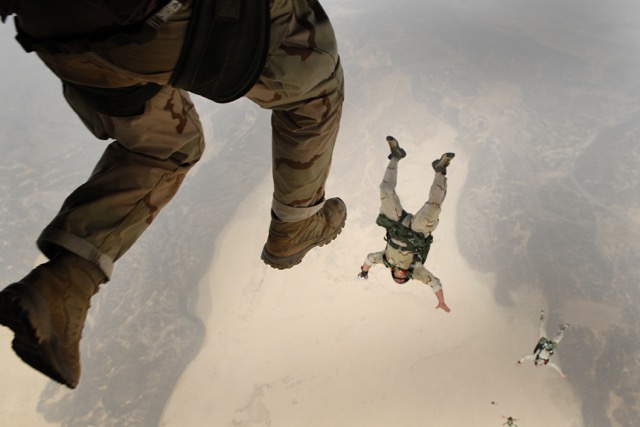
| Important Points to Consider: | Details |
|---|---|
| Weather Conditions: | Check the weather forecast before the scheduled skydiving date. Skydiving centers prioritize safety, and jumping may be postponed or rescheduled due to unfavorable weather conditions. |
| Clothing and Equipment: | Advise your child to wear comfortable athletic clothing and appropriate footwear for skydiving. The skydiving center will provide all necessary equipment, including jumpsuits, goggles, and harnesses. |
| Health Considerations: | Ensure your child is in good health and does not have any pre-existing medical conditions that may impede their ability to skydive. Consult with a medical professional if necessary. |
Confirm Safety Measures: Your child’s safety is of utmost importance. Before the scheduled skydiving day, ensure that you have thoroughly discussed safety measures with the instructor at the skydiving center. Inquire about the training and experience of the instructors, the maintenance of equipment, and the emergency protocols in place. It is essential to be fully aware and satisfied with the safety precautions taken by the skydiving center.
By following these steps and properly planning for your child to skydive, you can ensure a safe and unforgettable experience. Skydiving can be a life-changing adventure that teaches valuable lessons in courage, confidence, and facing fears. Letting your child take part in this thrilling activity can be a momentous occasion that they will cherish for a lifetime.

